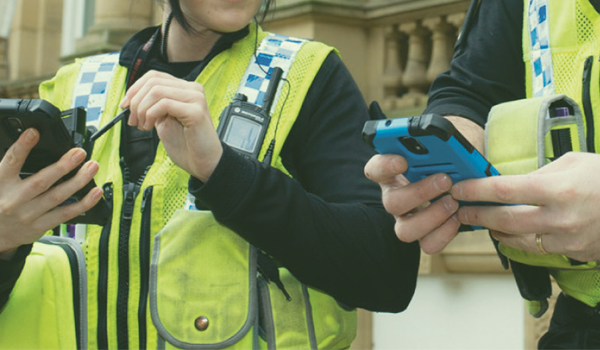Data sharing issues can be solved by digital transformation
Police forces must embrace digital transformation if they are to avoid data sharing issues. Earlier this month, Greater Manchester Police (GMP) was fined £150,000 by the Information Commissioners Office (ICO) for losing highly sensitive data, but industry representative body techUK argues that digital evidence submission would eliminate the risk of suffering incidents such as this.
Police forces must embrace digital transformation if they are to avoid data sharing issues. Earlier this month, Greater Manchester Police (GMP) was fined £150,000 by the Information Commissioners Office (ICO) for losing highly sensitive data, but industry representative body techUK argues that digital evidence submission would eliminate the risk of suffering incidents such as this.
It says GMP is by no means the only police force to struggle occasionally with data protection, but embracing digital transformation across policing would greatly reduce the risk of such data losses in the future.
In its paper Digital Policing: The Future of Modern Crime Prevention, techUK says secure digital evidence submission would not only eliminate the possibility of data getting lost in the post, but would also save the police a great deal of money, freeing-up officer time and allowing for the better allocation of resources.
Were GMP able to submit the evidence to the National Crime Agency (NCA) digitally across a secure system, this incident would have been avoided, it adds.
The lost data was footage of interviews with victims of violent or sexual crimes. Unencrypted DVDs with the recordings of named victims talking openly in interviews were sent by post to the Serious Crime Analysis Section of the NCA. But the DVDs, sent by recorded delivery, were never received.
The ICO investigated the data loss and issued the Level D fine (the band for the second most serious offences). The ICO concluded after its investigation that GMP had failed to keep highly sensitive personal information in its care secure and did not have appropriate measures in place to guard against accidental loss, thus breaching data protection law.
The ICO found that GMP had been sending unencrypted DVDs by recorded delivery to SCAS since 2009 and only stopped after the security breach in 2015.
Henry Rex, techUKs programme manager for justice and emergency services, said: Police forces handle and store a vast amount of sensitive data, and it is vital that law enforcement agencies are able to share that data easily and securely with each other.
If the police want to reduce the risk of suffering incidents such as this, as well as significantly improve efficiency, they must embrace digital transformation.
Moving away from physical data sharing, like video footage on DVDs, and towards digital evidence submission, and interoperable systems that can access and exchange data seamlessly with each other, could significantly improve the security of police data as it is shared.
At both a national and local level, police in the UK have made great strides towards digitisation, but to fully realise the potential benefits, more work is still to be done.






